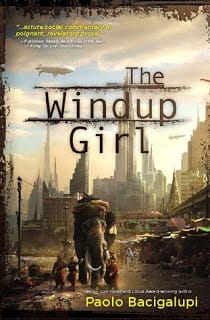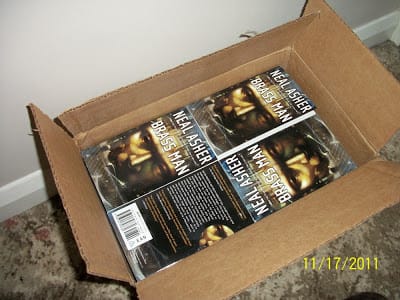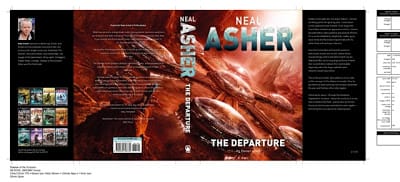On a previous post someone who signed in as Northern Fop had this to say in the comments section, and I’ve brought it here because my reply is going to be a lengthy one:
Hi Neal. I’m a long-time fan so I was a little taken aback by the negative reviews “The Departure” has received on Amazon. I was curious how a writer (well actually, you) deals with this.
Do you ignore it – after all, the book is still selling by the bucket-load – or try and view it as constructive criticism?
I suspect some of the whining is driven by the “but it’s not the Polity!” brigade, but the reality is these reviews will have a negative impact on your income, which has got to hurt. [I get the impression from your blog that you’re not yet on Tom Clancy levels of income…]

Nope, I’m not on Tom Clancy levels of income, but the pain is not about income. Even when I can logically rip apart such reviews, or when there are a hundred positive reviews to balance against them, they still hurt and feel personal. No writer wants his book to be disliked and no human being wants to be personally disliked. However, anyone who paid the entry fee, i.e. bought the book, has a right to a say. If what they say is constructive I’ll absorb and inwardly digest it, but let’s be honest here, when someone dislikes a book, their comments are usually completely negative. ‘Like’ or ‘dislike’ usually come first whereupon the reviewer searches for justifications. I can be as guilty of that as anyone and, because I know how it feels, I generally try to avoid reviewing a book I didn’t like, or didn’t finish.
So, what I have to do is just take it on the chin and carry on. The title The Departure, it’s now becoming evident to all, has a double meaning. It is also a dystopia which for me is also a bit of a departure in itself. The Polity books are all usually set on the Line – some border or war zone – but in essence are somewhat utopian and positive in their outlook: the people have all the wonderful toys of advanced technology, the prospect of living forever in a lurid and busy universe full of wonder. In writing The Departure, I half expected to be punished for ‘departing’, for there are those who feel betrayed when a writer doesn’t produce more of the usual. So why did I take this risk? Why not just keep on pumping out the Polity books?
When I look around at other writers I see many of them confined by their fans, by their publishers, and by fear of failure, to a single narrow milieu. Continuing to write the same thing they can become dry and stale, and quite often just fade away. Also, those who followed their initial success with lots more of the same, are always punished for daring to venture off into something different. After the lengthy Thomas Covenant fantasy, Stephen Donaldson tried science fiction and got pilloried (though I’m going to be reading his first two SF books soon). Martina Cole, trapped in her narrow London gangland milieu, is being steadily dropped by her fans. And I’m sure you can all also think of writers who produced one excellent series, then seemed to just disappear.
Because of this, right from the start I tried to keep myself out of the trap. This is why you didn’t get the Cormac series delivered one book after another, or the Spatterjay series, and why various outliers like Hilldiggers and Cowl were also dropped into the mix. In itself this wasn’t too risky, since most were Polity books, but I can see how, if I had written the Cormac series first then followed it with the Spatterjay series, there would have been those protesting the change and demanding another Cormac book. I did take a risk with Cowl and, when I delivered it, an editor’s response to someone else was, ‘We might have made a mistake here’ whereupon that book went on to be shortlisted for the Philip K Dick award. I took a risk writing Orbus in present tense, and that polarized opinion with some hating it and some thinking it my best book to date.
So, I departed with The Departure because I did not want to be trapped in the Polity forever. I took this risk because I didn’t want to become stale. I’ve opened up another option, another future in which to set books because I’m here to stay and intend to keep on writing books until they nail me into a coffin. Yes, I’m getting some negative responses, but I’m also getting some very positive ones too. I suspect that most of those Polity fans that dislike this book are not going to dump me at once. Maybe they won’t buy or read the next two books in this trilogy (which would be a shame because it gets a lot more sfnal), but they’ll probably pick up the next Polity book I produce (which I’m thinking of calling Penny Royal – I may have ‘departed’ but that doesn’t mean I’m never coming back to the Polity). Meanwhile, this book is attracting new people to my stuff, and it’s expanding my market, since many of those new people will go on to try my previous books.
Note One: I never judge a book’s success or otherwise from reviews on Amazon. Over the last ten years I’ve seen books there roundly praised in hundreds of comments, but have known, from those in the industry, how few copies actually sold. So, in answer to your question, Northern Fop, the reality is that there isn’t much in the way of a ‘negative impact on my income’ because of them. I’ll just wait and see what sales figures the publisher comes up with which, thus far with that visit to the top 20, may well be good.
Note Two: I don’t bother with reviews from those with a political axe to grind. I’m aware of reviewers who are quite prepared to attack me solely because my political views are contrary to their parochial left wing stance. Of course it’s okay for writers they agree with to wax lyrical about the delights of socialism and anti-capitalist greenery, but I must keep silent. Don’t you just love the stink of hypocrisy?



